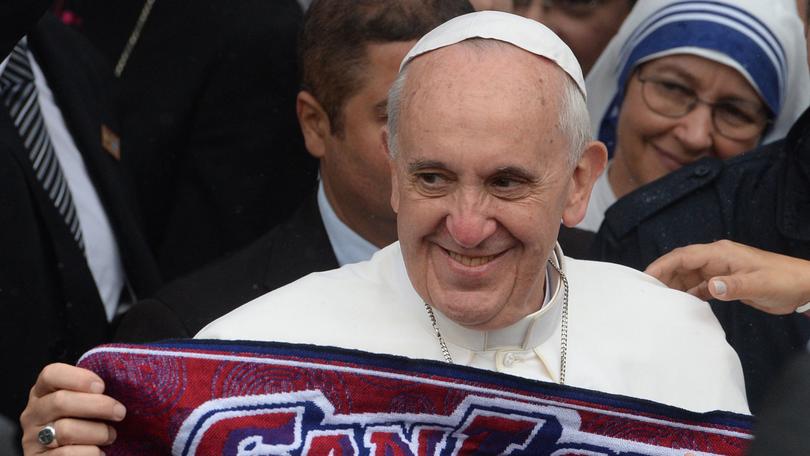Pope Francis: How the Jesuit pontiff from South America made his mark on the Catholic Church
Francis was the first non-European Pope in a thousand years and the first from the southern hemisphere.

Pope Francis was a trailblazer and reformer in more ways than one.
His death on Easter Monday has left the Catholic world in mourning but also marvelling at his courage, to bring an ancient institution into the modern era and to be a socially progressive champion for the poor.
The spiritual leader of the world’s 1.4 billion Catholics since March 2013, Francis was the first non-European Pope in a thousand years and the first from the southern hemisphere ever.
Sign up to The Nightly's newsletters.
Get the first look at the digital newspaper, curated daily stories and breaking headlines delivered to your inbox.
By continuing you agree to our Terms and Privacy Policy.He hailed from Argentina, making him the first Pope from the Americas.
Historically, most popes come from the Northern Hemisphere, particularly Europe. According to the BBC, not since Syrian-born Gregory III died in 741 had there been a non-European Bishop of Rome.
Francis was also the first Jesuit to hold the position. Jesuits, known as the “Society of Jesus”, are a Roman Catholic order of priests and brothers founded half a millennium ago by the soldier-turned-mystic Ignatius Loyola.
Jesuits are the largest male religious order in the Catholic Church, with over 16,000 priests, brothers, scholastics and novices worldwide.
Members undertake a variety of roles: some are pastors, teachers and chaplains, while others are doctors, lawyers and astronomers.
They swear vows of poverty, chastity and obedience.
Pope Francis lived these values as a humble man and a champion for those in poverty. From the outset of his papacy, he set the ambition to be a “poor church for the poor”.
It explained his sober and austere lifestyle, eschewing all grandeur and luxuriant amenities, including the accommodation made available to his predecessors. Instead, he lived in a simple apartment and cooked his own supper.
He also showed no interest in the palatial papal summer residence at Castel Gandolfo.
He brought a modern, less formal approach to the role and his “common touch” a was a big part of his appeal.
“My people are poor and I am one of them,” he explained.
Rome has previously treated Jesuits with deep suspicion due to their perceived independence and practical approach, which clashed with the more traditional and centralised approach of the Papacy.
As well as being a champion for the poor, Francis also spoke passionately on climate change, approved blessings for same-sex couples and advocated compassion for divorced Catholics.
However, he maintained a conservative stance on other issues, rejecting women priests, gay marriage, birth control, among other orthodox positions.
Francis died at age 88 on Monday in Rome. He had been hospitalised in mid-February with bronchitis, which progressed to life-threatening pneumonia, before leaving the hospital in March.
The late pontiff had a history of health issues, including respiratory problems.
